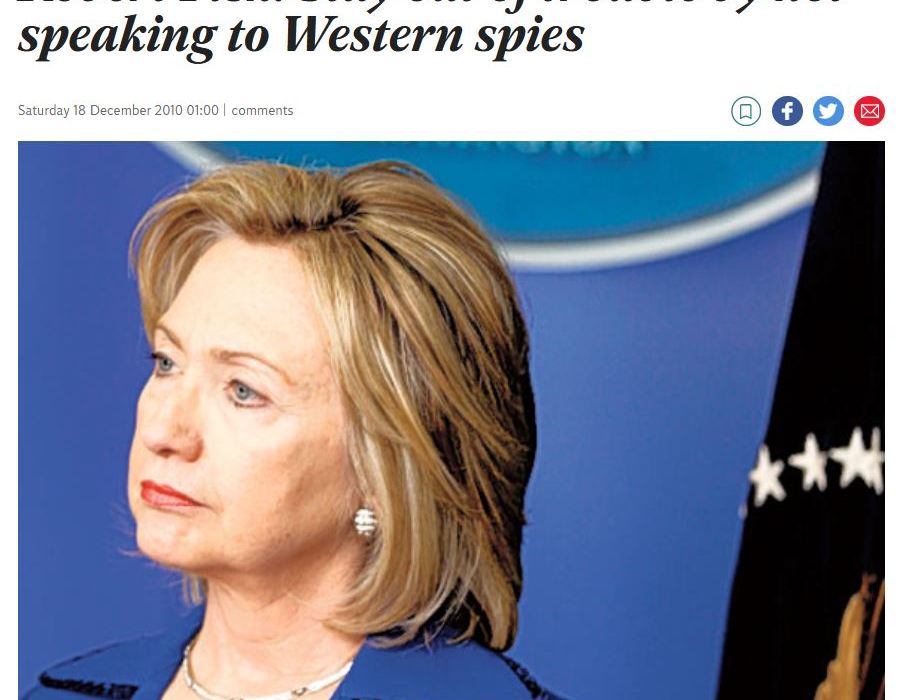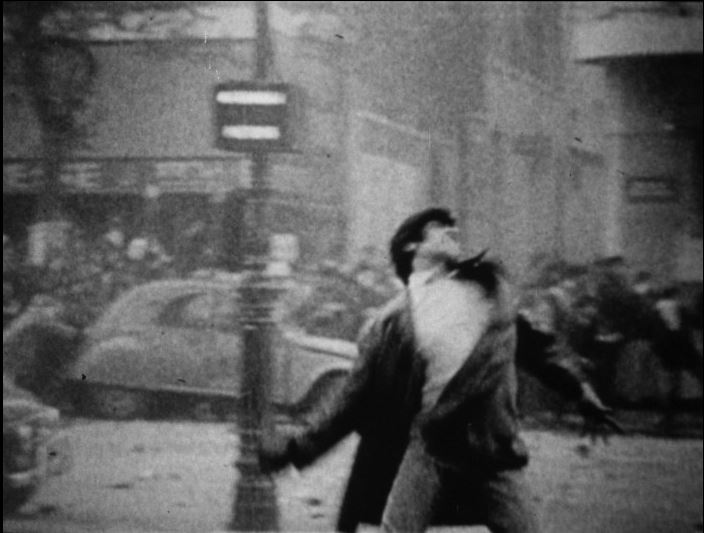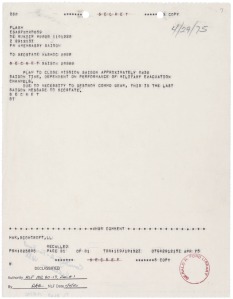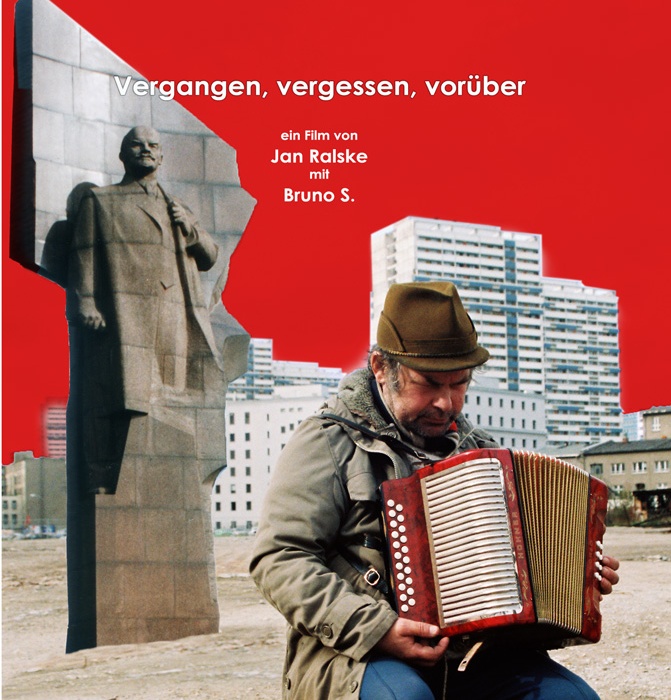How shutting up the anti-fascists and war-weary helped weaponize Israel
and saved the Nazi arms industry, post-Hitler
September 9th is traditionally “OdF–Day” (Opfer des Faschismus/Victims of Fascism-Day) in Germany, or rather it was traditionally a memorial day for the victims of Nazi Germany in the GDR/East Germany. For West Germany the task of sorting out the blame and categorizing the victims for WWII was a more complicated task, since so many supporters of Hitler’s Reich, both big and small, went merrily on their way to successful careers in the FRG/West Germany.
The “Victims-of-Fascism Memorial Day” was started nationwide in Germany right after WWII by a group of former prisoners, refugees, and politicians called the VVN – “Vereinigung der Verfolgten des Naziregimes/ Union of Persons Persecuted by the Nazi Regime”. Over 100,000 former political prisoners of all confessions and political parties marched on the first ODF-Day in 1945, and for the next three years the commemoration was a huge affair with guests from abroad and massive crowds in the Lustgarten Central-Park of East Berlin.

This changed rather suddenly with the heating up of the cold war in 1948/49 and the founding of the FRG (West Germany) and subsequently the GDR (East Germany). 1948 also happened to be the year Israel unilaterally proclaimed its existence. The West Germans quickly came up with a less left-wing, more Aryan substitute for the anti-fascist VVN in the form of Wehrmacht Officier Graf von Stauffenberg and his upper-class circle of Johnny-come-latelys, who unsuccessfully attempted to assassinate Hitler in the final year of the Third Reich.
On September 12, 1952 the West Germans built a special monument/memorial site for Graf Von Stauffenberg and what they considered the “German Resistance” at the former Plötzensee Prison, which also served as the film set for Tom Cruise in “Valkyrie”. What is good enough for Hollywood turned out to be good enough for the new West German Republic: a military man as the hero (who happened to be an anti-Semite* ). West Germany in the fifties began to resemble the USA in the fifties, with its own especially virulent form of “McCarthyism”, which saw the abolishment of the German Communist Party, blacklists, and reactionary propaganda on a huge scale. In regards to rituals of recent German history, the West Germans even ordered the police to remove “leftie” VVN-members from the “official” ceremonies, also confiscating the commemorative wreathes that the organization had dared to placed at the new Plötzensee memorial site. You have to imagine the audacity: the VVN consisted of people whose families had been eradicated, who were imprisoned and tortured by a regime whose former members were now prohibiting these victims from taking part in memorial services for their own dead!
The VVN was quickly becoming a “Union of Persons Persecuted by the Adenauer Regime”: to avoid matters getting out of hand, on October 20, 1959 West Germany sought to officially ban the VVN all together as an “enemy of the constitution” (“Verfassungsfeind”) in West Berlin. The trial began on November 29, 1962 but ended in a tumultuous scene when August Baumgarte exposed the presiding judge, Dr. Fritz Werner, as a hard-core Nazi , joining the fascist party in early 1933 1. The trial was abruptly postponed and interestingly enough, never re-convened.5
A day after this year’s 71th ODF-day marks the 66th anniversary the West German/Israel “Luxemburg Treaty” in 1952, better known in Germany as the “Wiedergutmachung” (Compensation/Reparations) Treaty: West Germany agreed to pay Israel 3.5 billion German Marks, although most of this sum was in goods, making it more a subsidy for German industry than anything else. Germany was occupied by the Allies at the time, and the British were strongly opposed to the reparations treaty. The British, of course, had their own interests in mind: fear of a re-emerging German industrial/military power was one factor, but also as the administrators of Palestine until 1948 they feared the German reparations would stimulate emigration to the newly formed State of Israel, and aggravate attempts to pacify the volatile region. Their fears turned out to be very valid, but the USA lobby triumphed and they pressed the West German government to reach agreement for reparations to Israel.
Israel never referred to these payments as “Compensation/Reparations” but simply as “payments”. This was in part due to the furious controversy the agreement caused within Israel, where Menachem Begin (Likud’s first Prime Minister) called the German Chancellor Adenauer a “murderer”, and described the West German payments as scandalous blood money. On March 27, 1952 the Israeli underground organization “Irgun” even sent letter bombs addressed to Adenauer, as well as to the German delegation in Luxemburg, who were responsible for negotiations. 2 The packages were discovered in time, but a German official in Munich trying to defuse one package was killed. 3 A member of Begin’s Irgun, Jakob Farshtej, was arrested in Paris but allowed to return to Israel, where he later served in Begin’s government.

The announcement of the treaty nevertheless had the effect of a bomb explosion in Germany. Bundestag members on the left and the right were furious, for very opposite reasons, and it was only with the help of the opposition SPD (Social Democrats) that Adenauer pushed the treaty through with a tiny majority, against the resistance of his own Christian Democratic colleagues. Public surveys at the time showed that only 11% of the West German population favoured the payments to Israel.
The West German politicos who included many former Nazis, hoped to gain some moral ground on an otherwise truly dark and dirty German and personal history. In fact, only a very small percentage of the funds ever went to the victims of the Nazi’s terror regime. Israel was virtually bankrupt at the time, and part of the deal was free “made-in-Germany” weaponry. (see also: HERE) Israel also used the funds to prop up its economy. The “payments” would become a decisive part of Israel’s income, comprising as much as 87.5% of the state‘s income in 1956 4. For the West Germans, the agreement proved to be a boost for their own weapons industry** which was in complete disarray after WWII. How can you sell weapons during a military occupation, with no army of your own (yet) and without being a member of a military alliance? (Germany was first admitted to NATO in 1955, under massive protest of the general public, 80% opposed NATO membership: the memories of WWII were fresh and they had no desire for new military networks.)
The West Germans did have better success using the Luxemburg Treaty with Israel as a political weapon against the East German (GDR) government. They demanded that the GDR ante up a third of the promised funds. The East Germans refused, they had other priorities. The GDR had a different procedure for reparations and the state defined itself as the “new” and better Germany: many of their leading politicians had spent years in the Nazi prisons and concentration camps. Anti-fascism was emphasized as a national doctrine. The GDR paid no reparations to the State of Israel but used assets of the former Nazi government for direct special payments to victims of that regime, in form of housing and extra pension bonuses. Other resources and assets were transferred to publicly owned industries or as used to pay large reparations to the Soviet Union and Poland, countries that were amongst the most severely destroyed by Hitler’s war, with over 20 million dead in the Soviet Union alone. West Germany paid virtually no reparations to Eastern European countries, which had become socialist allies of the Soviet Union. In addition, the GDR, along with most states of the Eastern Europe at the time, regarded Zionism as a form of racism, and supported the U.N. resolution defining Zionism as such on November 10, 1975.
With the end of the GDR in 1990, all this unfinished business of East Germany’s “Sonderweg” (other path) in its relationship to Israel and Fascism had to be mopped up. On April 12, 1990, shortly before its final dissolution, the last Volkskammer (Senate) of the GDR publicly apologized for the GDR’s “unfriendly” policies toward Israel and for approving the U.N. resolution of 1975 which declared Zionism as a form of racism. Now they were finally ready to be accepted as “real” Germans.
Germany changed “ODF Memorial day” to January 27, and re-named it “Holocaust Remembrance Day”, via a proclamation by CDU Presiden Roman Herzog 1996. Two birds were killed with one very heavy stone: Germany buried an Anti-Fascist tradition and celebrated an Israel weaponized by the very same factories that served Hitler, who was the decisive force behind the emigration of European Jews to Palestine.
The Germans like to regard these armaments for Israel as a kind of “late” justice on their part but fail to see that these weapons were then used with the same justifications as old Adolf, namely to persecute a civilian population resembling the Jews of Europe: unarmed, innocent Palestinians without a political lobby. The fact that the Germans are just as responsible for the Nakba as they are for the Holocaust is something they refuse to recognize to this very day.
For futher reading about the secret cooperation of BRD weapons industry + Israel see: http://www.bits.de/public/articles/cast06-02.htm
* (in German) “Ausgerechnet Stauffenberg”
**NOTE (German) Es ging den Israelis damals darum, einen möglichst diskreten und – Devisen waren immer knapp – billigen Weg zur Beschaffung von Waffensystemen zu finden. Peres und seine Begleiter wünschten sich u.a. Transportflugzeuge, Hubschrauber, Artillerie und Panzerabwehrraketen. Diese Waffen im Wert von rund 300 Mio. DM sollten aus Wehrmachtsbeständen sowie aus Beständen stammen, die von den USA an die Bundeswehr geliefert wurden. Andere wurden gleich aus Bundeswehrdepots gestohlen, wie Strauß stolz zugab, oder mit deutschen Plänen im Ausland produziert. Durch die Übernahme der Kosten durch die BRD wurde der deutschen Rüstungsindustrie eine Anschubfinanzierung für Bau und Entwicklung von Waffen am Verteidigungshaushalt vorbei garantiert. Das gilt bis hin zu den aktuell an Israel gelieferten Dolphin-U-Booten7: Die Bundesrepublik zahlt Israel seine Waffenkäufe in Milliardenhöhe und die deutsche Verteidigungsindustrie profitiert davon, weil Kunden und Umsatz politisch garantiert werden und die Entwicklung neuer Waffensysteme damit finanziert wird.
1 http://www.bo-alternativ.de/VVN/VVN/Geschichte-der-VVN.html
2 Die Welt, Mar. 23,2012 (http://www.welt.de/channels-extern/ipad3_welthd/a_welt_ipad3/kultur_a_ipad3/article13939725/Bombe-gegen-Adenauer-und-die-Wiedergutmachung.html)
3 Haaretz, June 13,2006 /Barkat (http://www.haaretz.com/print-edition/news/memoir-begin-played-central-role-in-attempt-to-kill-adenauer-1.190115)
4 Wikipedia „Reparations Agreement between Israel and West Germany (http://en.wikipedia.org/wiki/Reparations_Agreement_between_Israel_and_West_Germany#cite_note-barkat-6 )
note: ODF Day/Exhibition : http://www.rosalux.de/fileadmin/rls_uploads/pdfs/Projekte/2005/Tafeln_Odf-Tag-screen.pdf
5 UPDATE – Germany still hasn’t totally wiped out anti-Fascism, but they are trying hard: recently the government has revoked the charitable (non-profit) status of the VVN (Victims of the Nazi Regime) which the VVN fears will destroy their financial base, used e.g. to hold workshops + lectures in schools about Nazi crimes.














